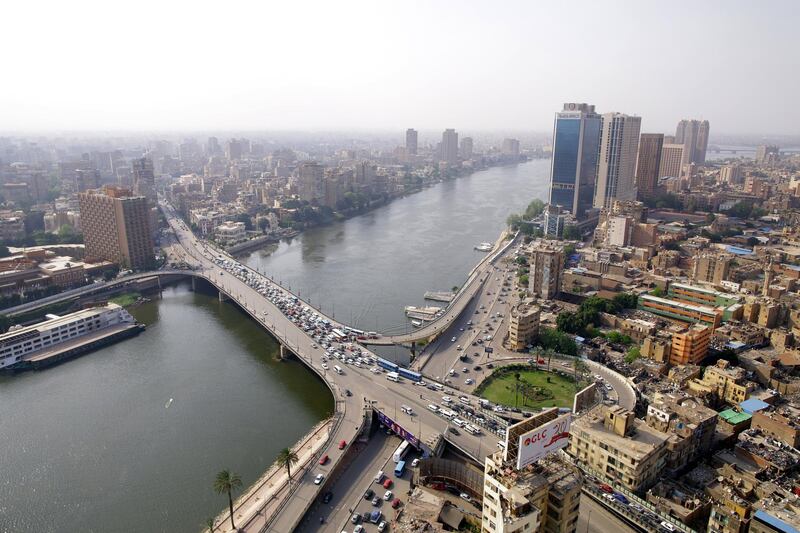Egypt needs to ramp up efforts to develop its economy and create more private sector jobs, as the North African country emerges from a challenging period of low growth, a senior International Monetary Fund official said.
“The global economy is improving as trade and investment show strength we have not seen in a decade. These forces are benefiting most countries, including Egypt,” the IMF’s first deputy managing director David Lipton told the government of Egypt in a speech in Cairo on Friday. “Now would be a good time for Egypt to shift growth and job creation into a higher gear.”
In particular, job creation is Egypt’s “single biggest economic challenge ... more than anything else, Egypt cannot delay on jobs,” Mr Lipton said.
Egypt’s working age population is projected to increase by 20 per cent by 2028, creating a labour force of 80 million Egyptians in the next decade, which will need employment. In 2016, the Egyptian economy was suffering from low growth, lagging investment, inflationary and currency pressures and rising public debt, as well as a host of earlier security issues.
The IMF extended a $12 billion loan to the country in 2016 linked to a structural adjustment programme that required fiscal consolidation, fuel and electricity subsidy cuts, a tightened monetary policy and liberalised foreign exchange market. The pound's value was halved and new VAT was implemented. At the same time measures were taken to improve the business environment and better manage public finances.
The Washington-based lender’s most recent economic outlook for the Middle East, North Africa, Afghanistan and Pakistan region, published last week, projects stronger GDP growth for Egypt over the next two years in the context of the IMF-funded reforms.
________________
Read more:
[ Egypt seeks foreign investors for Red Sea projects as it targets pre-2011 tourism levels in 3 years ]
[ Archaeologists discover 2,000-year-old necropolis in Egypt ]
[ Russia and Egypt resume direct flights two years after attack ]
________________
Growth is expected to rise to 5.2 per cent in 2018 from 4.2 per cent last year, and accelerate further to 5.5 per cent in 2019, aided by an increase in gas production.
“Improving confidence is boosting private consumption and investment, adding to the increase in exports and tourism,” the IMF report said.
However, public debt remains high, with the debt to GDP ratio at around 96 per cent.
Egypt should take advantage of improving global GDP growth – projected at 3.9 per cent this year and into 2019 – to deepen its reforms, Mr Lipton said. That “window of opportunity” may not be open for too long, he said, citing expectations of rising interest rates and tightening global financial conditions on the back of trade uncertainty in the medium-to-longer term.
“There are several immediate reasons to press ahead with reform [in Egypt],” Mr Lipton said. “Public finances are certainly on a firmer footing, but public debt remains very high. A strong effort is needed both to consolidate and make room for spending in key areas such as health and education.
“Delays in following through on the reform of energy subsidies could again leave the budget at risk from higher global oil prices.”
In particular, the country should seek to reduce youth unemployment, by improving ease of doing business in the private sector. An estimated 31.3 per cent of Egypt’s young people were unemployed in 2016, and their absorption into the economy could boost growth into the range of 6 to 8 per cent overall, Mr Lipton said.
“That would be a transformation. It would mean improving living standards for large segments of the population.”






